How Does A Combi Boiler Work for Instant Hot Water & Heating?
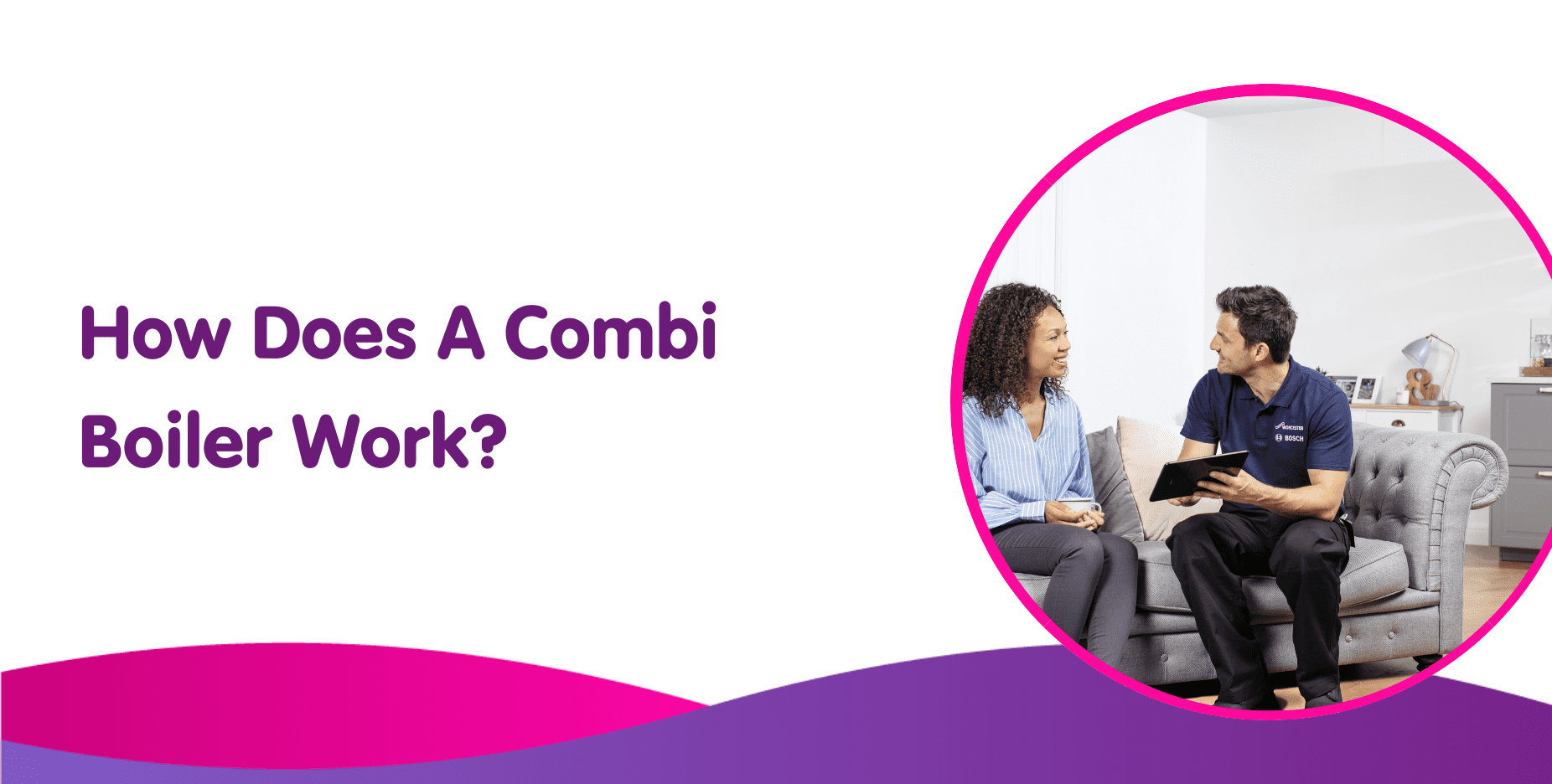
Jump to:
How does a combi boiler work and what are they?
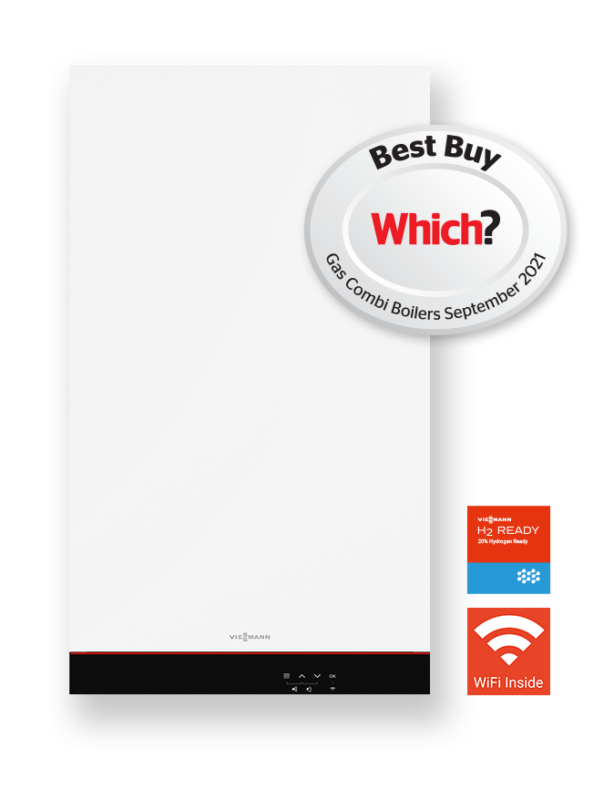
Choosing the right boiler for your home, central heating and hot water is essential, so make sure you explore all your available options.
Get a fixed-price here in 20 seconds
As well as the initial cost of the combi boiler and installation, you may be wondering what does a combi boiler do, how effective and efficient they are and the long-term costs of running it.
To help make your decision a bit easier, this guide will take you through everything you need to know about combi boilers, including what they are, how they work for hot water and central heating, the average costs, and the pros and cons of this particular heating system.
Video: How does a combi boiler work?
This in-depth video will educate you on how a combi boiler worksGet an online fixed price in 20 seconds:
What Is a Combi Boiler?
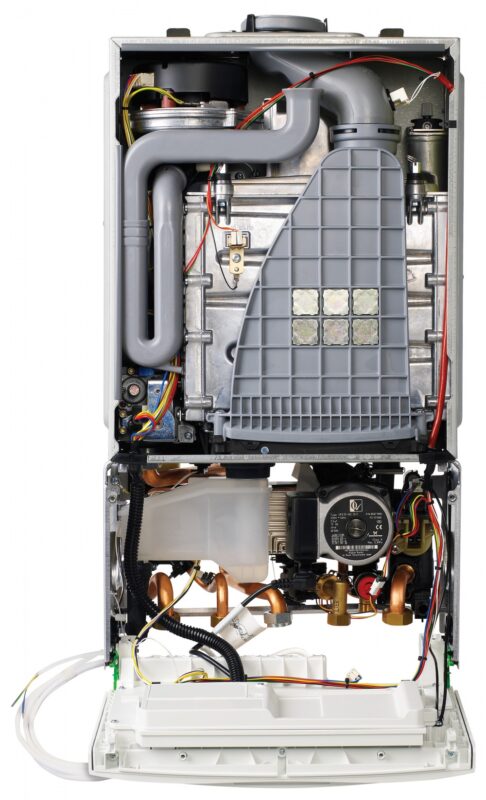
A combination boiler, better known as a combi boiler, is the most popular style of replacement boiler in the market, especially in the UK at present.
They heat the home’s central heating and water supply directly, meaning there is no need for large storage tanks that conventional boilers rely on. In the UK, combi boilers equate to 15 million homes.
New combi boilers are traditionally easy to install and don’t take up much room, making them an excellent option for all homes, especially those where space is at a premium.
If you read enough, check out some of the best combi boilers right now which are all hydrogen blend ready and available at Boiler Central
How Does a Combi Boiler Work?
Combination boilers can use different fuels, including LPG or mains oil and gas. The fuel that is used will enter the boiler’s combustion chamber, where an electric ignition will ignite it.
This heat heats the primary heat exchanger, which heats the cold water that flows through your pipes and heats your radiators or goes to your hot water taps. The water that passes through your central heating pipes is recycled back to the combi boiler.
The combi boiler uses a primary heat exchanger and a secondary plate heat exchanger to ensure the hot water that goes to the taps is clean.
Primary heat exchanger
The combi boiler’s primary heat exchanger will heat the water that passes through the pipes in your home and heats your radiators. The water then returns to the combi boiler, where it’s reheated, keeping the temperature at about 60°C.
Because this water passes through pipes and is continually recycled, it can get dirty, making it unsuitable for taps or showers.
Secondary plate heat exchanger
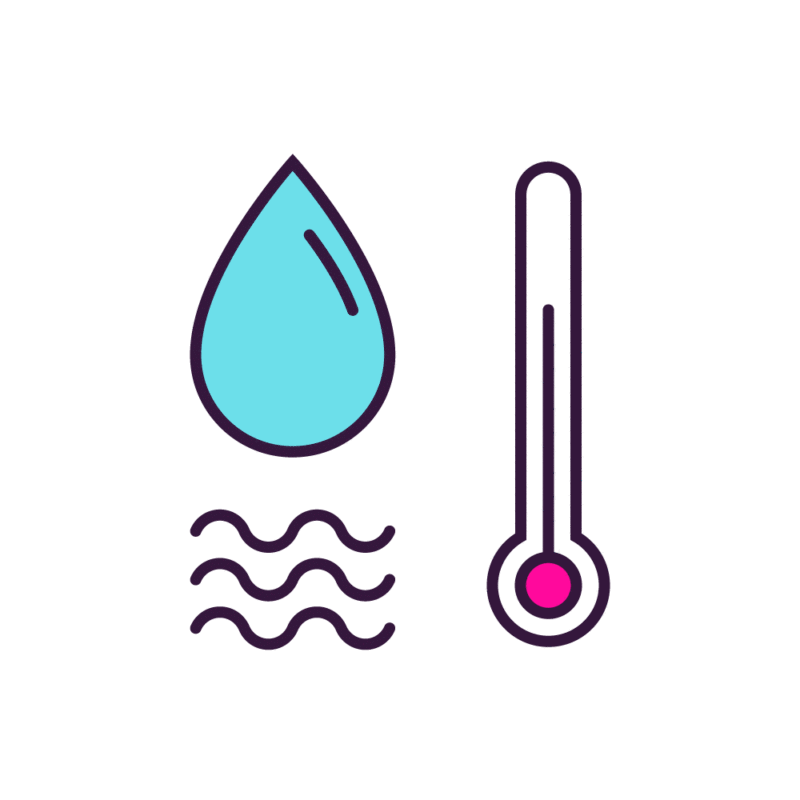
Your combi boiler will use the secondary plate heat exchanger rather than having dirty water coming through your shower or the taps used to clean hands, wash dishes, or run baths.
The secondary plate heat exchanger works when you turn on your hot tap to pause the central heating. Your system will then open the diverter valve for the recycled water to enter the secondary plate exchanger, which heats the pipes carrying the clean water to their destination.
Get an online fixed price in 20 seconds:
What Are the Pros and Cons of a Combi Boiler?
Making up your mind about whether a combi boiler is a suitable choice for your home can be difficult. With so many options on the market, doing some research can help you make the best decision.
To help make your decision a bit easier, we have compiled a list of the pros and cons of having a combi boiler system in your home.
Pros:
- Size – One of the biggest benefits of combi boilers is the size compared to other boiler systems. Because they don’t need to store water, they are much more compact and better for smaller homes that don’t have as much space.
- Easy installation – Combi boilers are much easier to install because there is no water storage unit needed to install. Easier installation reduces costs right from the start.
- Efficient – Combi boilers offer homeowners excellent efficiency in comparison to conventional boilers. Modern models can offer an efficiency of over 90%.
- Fast hot water and heat – Hot water on demand means you don’t need to wait for the water to heat up slowly or worry about it running out. It’s also great for heating your home quickly if you have been out all day.
- Cost-effective – Thanks to the efficiency of combi boilers and how they work, you will save money on your energy bills. A conventional boiler will need you to heat a full hot water storage cylinder or keep it warm for minimal usage, whereas combi boilers heat the water when needed. This is great for anyone trying to reduce their carbon footprint, live in a more environmentally friendly way, and save money on their heating bills.
Cons:
- Not great for high water demand – Combi boilers don’t have backup water tanks, which means that if there is a high demand for hot water, the water pressure will be significantly reduced. Homes with multiple occupants and more than one bathroom should consider this. Although you get hot water on demand, its availability is limited.
- Complex systems – Though combi boilers are easy to install, they run using complex systems that need electronic controllers and chips. This means that if something goes wrong, it can be more complicated to fix, and more complex repairs can take longer, increasing the cost of labour.
- Slow water rate – Because the hot water from a combi boiler comes from the mains before being heated and travelling through to the hot water tap, it can be slower than a water storage tank. This will only impact the water pressure when running baths but can be frustrating.
- Loss of hot water and heating during breakdowns – Combi boilers offer great efficiency by heating your water and central heating. However, it does mean all your eggs are in one proverbial basket. If your boiler breaks down, you will be left with no hot water coming from your boiler and no central heating compared to traditional boilers with a separate central heating system and water boiler.
- Regular servicing – As part of manufacturers ts and cs, you have to pay for the cost of a boiler service every year to keep the warranty valid.
Read more about the advantages and disadvantages of a combi boiler here
What Can Combi Boilers Be Fueled By?
Combi boilers offer homeowners a versatile range to choose from. Depending on your preference, your combi boiler can be fueled by the following;
- Gas – Gas can be used from the mains supply in a combi boiler, making it quick and easy for a professional to install and for ongoing use.
- 20% hydrogen blend – Hydrogen ready combi boilers can run on 20% hydrogen mixed with natural gas
- Oil -Oil for a heating system would usually be delivered and stored in a tank that can be rented from the supplier.
- LPG – LPG is liquefied petroleum gas and can be purchased in tanks or bottles stored within the home.
- Electric – Electric powered combi boilers can get hooked up to the electrics in your home by a qualified electrician and offers a quick and easy way to power your boiler.
How Long Does It Take To Install a Combi Boiler?
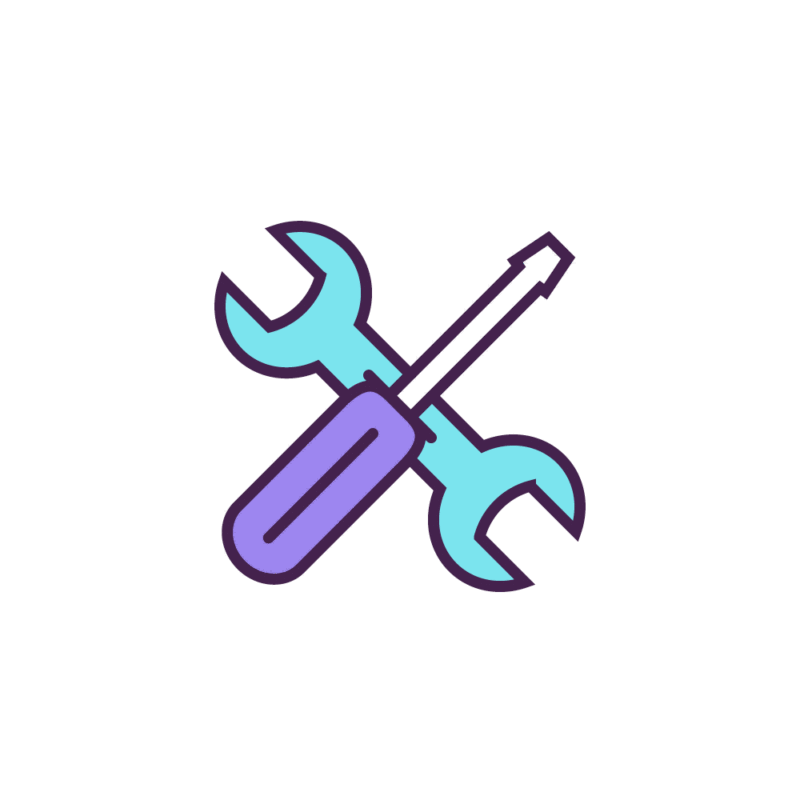
Another great benefit of combi boilers is that they are quick and easy to install. While some other boiler systems can take between one and three days to install, combi boiler installation can usually be completed in under six hours.
As well as reducing the inconvenience of having workers in your home for days, this means you will also have your new heating system up and running quickly.
Shorter installation times also reduce labour costs, making it considerably cheaper to install a combi boiler than a conventional boiler.
Read more about how long it takes to fit a boiler here
How much does a combi boiler cost?

A combi boiler costs will ultimately change due to boiler prices changing between brands, suppliers and models. Not to forget the ongoing energy crisis.
Add to that the varying costs of installation that will vary depending on your location, the installer, and how complicated a job it is. You will struggle to find an exact price without getting someone out directly.
Generally speaking, you could expect to pay anywhere from £500 to £1,000 for a budget model combi boiler, £1,000 to £1,250 for a mid-range combi boiler, and anywhere up to £2,000 for a premium model.
The average cost in the UK for a combi boiler and installation is roughly £2,500. Use our boiler installation costs calculator to compare combi boiler prices and find the best one for you.
How to Choose the Right Type of Combi Boiler
Choosing the type of boiler you want is only one step toward upgrading your central heating boiler. If you have decided that a combi boiler is a suitable choice for your home, you will have to select a specific size.
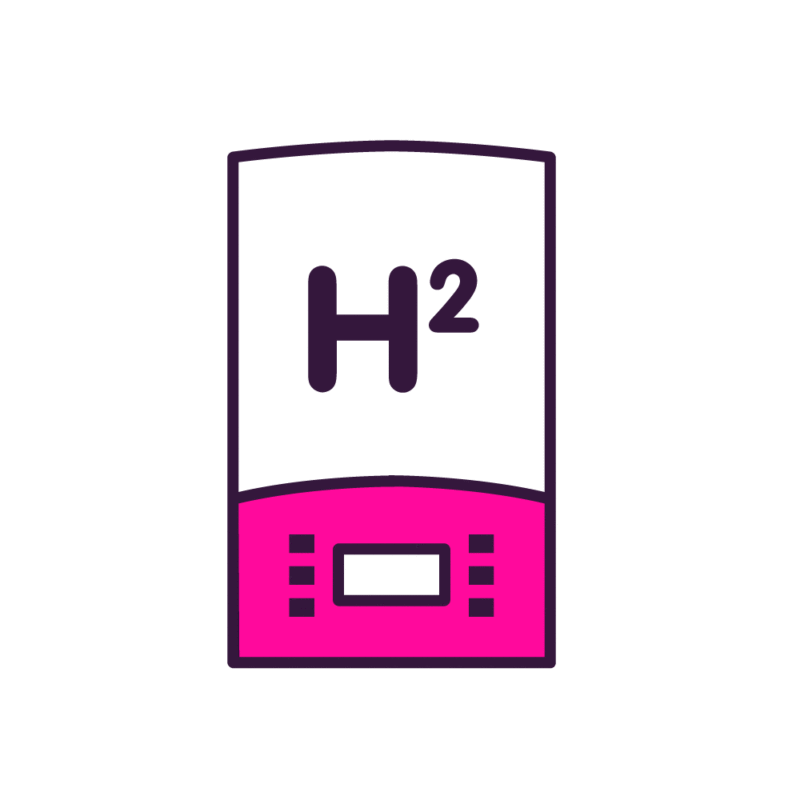
The size of the combi boiler you need will depend on the size of your home. Smaller systems like 24-27kw combi boilers would suit smaller houses and flats with one bathroom and up to ten average radiators.
Boilers for up to four-bedroom homes with one or two bathrooms (including ensuites) and as many as fifteen average-sized radiators should use 28 to 34kw combi boilers.
Boiler for Large homes with two bathrooms and up to twenty average-sized radiators should opt for 35kw or 42kw combi boilers.
It’s worth noting that combi boilers do not cope well with a high demand for water at the same time, so running two showers at the same time should be avoided.
Get an online fixed price in 20 seconds:
FAQs
How to bleed radiators with a combi boiler
Radiator bleeding is a quick and easy job that may help your central heating system run more efficiently and decrease the likelihood that it will break down.
The procedure for bleeding your radiators differs significantly depending on whether you have a combi boiler or another kind of boiler. I’ll guide you through how to bleed radiators using a combi boiler.
Make sure your combi boiler is off, that you have a radiator key on hand, and that a towel or cloth is available before you start.
- Discover the radiator bleed valve. Typically, each radiator has a little valve at the top.
- To collect any drips, place the towel or cloth below the bleed valve.
- The bleed valve may be opened by inserting the radiator key into the valve and turning it anticlockwise. To open it, you might need to exert considerable force.
- Until you hear a hissing sound, let the air out. This shows that the air has been let out and the radiator is now filled with water.
- By rotating the bleed valve anticlockwise and taking off the radiator key, you can close it.
For each radiator in your home, repeat this procedure.
It’s so important to check the pressure in your combi boiler after you’ve bled all of your radiators. You must repressurize the system if the pressure is too low. For details on how to do this, go to the user manual for your particular model.
What is the optimum temperature for a combi boiler?
The ideal temperature for a combi boiler varies based on the type and suggestions from the manufacturer. Setting the temperature between 60 and 70 degrees Celsius is often advised.
To find out the suggested temperature settings for your particular model, as much as it is boring it’s a good idea to study the user handbook.
To ensure that your boiler is running effectively and securely, it’s usually best to adhere to the manufacturer’s recommendations. Various boilers may have different ideal temperature ranges.
You can refer to the user handbook in addition to taking your household’s demands into account. For instance, you might want to set the thermostat a little higher if you have small children or older family members to make sure the home is cosy and warm. However, you could want to lower the temperature to use less energy if you’re attempting to save energy and lessen your carbon impact.
The ideal temperature for your combi boiler will ultimately rely on your own requirements and tastes. Finding a balance that keeps your house pleasant and your boiler operating well is energy saving heaven.
How long does a combi boiler last?
You can expect your boiler to last for around 15 years, with some even going as long as 20. How long your boiler lasts is dependent on how often it’s used and how well it’s maintained.
A boiler in a house with multiple people in use regularly might struggle to last as long. Taking out a boiler plan or having your boiler serviced periodically will ensure the boiler is well taken care of and any potential issues are dealt with early enough to avoid significant problems developing.
Can I install a combi boiler myself?
Unless you are on the Gas Safe Register and qualified to do so, you should not fit gas combi boilers yourself, and it’s illegal to install a combi boiler if you are not certified.
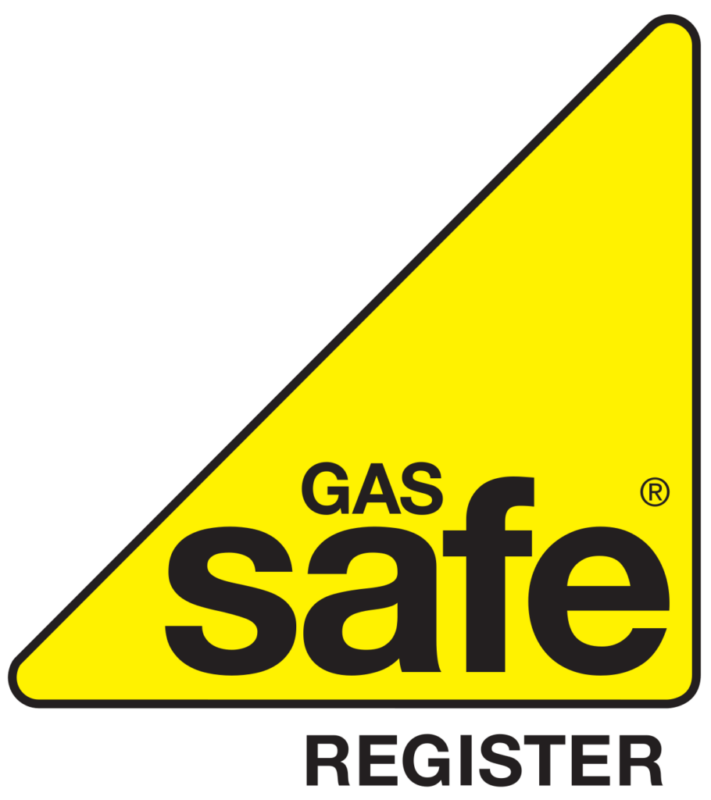
Though combi boilers are more straightforward for professionals to install and take less time, it’s still a complicated task.
Failure to adhere to the laws regarding the installation of boilers can result in heavy penalties such as a fine or prison sentence.
Combi boilers need to be sited correctly for safety reasons, and the warranty or any cover taken out would be invalidated if it’s not correctly installed.
Can combi boilers heat water and radiators at the same time?
A combi boiler does not heat water and radiators at the same time. They use control valves to divert the hot water to either your central heating system or to heat the water going to your hot water tap. They do not work in tandem, so you will be able to use one or the other.
Is a combi boiler right for your home – Final Thoughts
It’s clear why a combi boiler is the most popular boiler type in the UK. They are relatively compact and efficient, but combi boiler replacement is cheaper as they don’t need a separate hot water cylinder.
The space you will save by not having a hot water storage tank in your home is considerable, especially if you live in a small house. A hot water cylinder can take up a lot of space in an airing cupboard or loft space. Removing the need for this is a great benefit.
The efficiency of a combi boiler is also a great way to reduce energy bills and ensure you are being more environmentally friendly.
Having hot water on demand rather than a hot water system that requires an entire tank to be heated and maintained uses far less energy, making it a sensible option for homes without a massive requirement for hot water.
Installation by specialists can be quick, helping to reduce the overall cost of a new boiler system.
A combi boiler is worth considering if you are thinking about replacing an ageing boiler, or your current boiler has broken down, and you need to buy a boiler. As with any big financial decision, weighing up the pros and cons to decide whether this option suits your personal needs is essential.
Get an online fixed price in 20 seconds:


